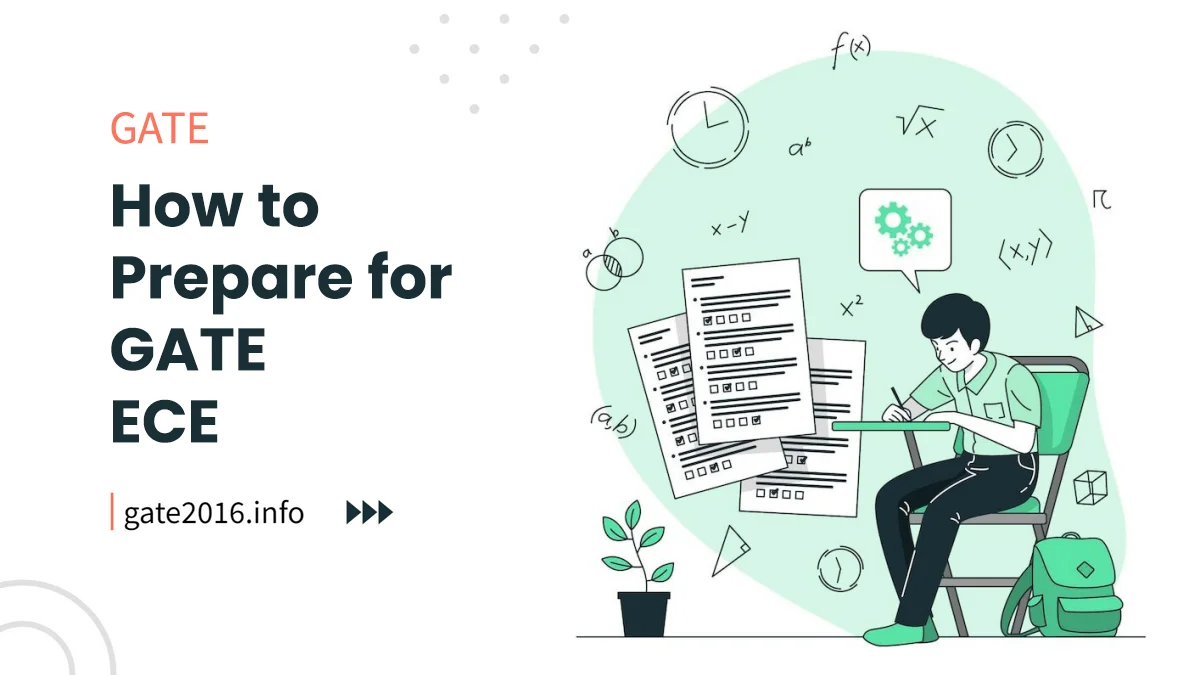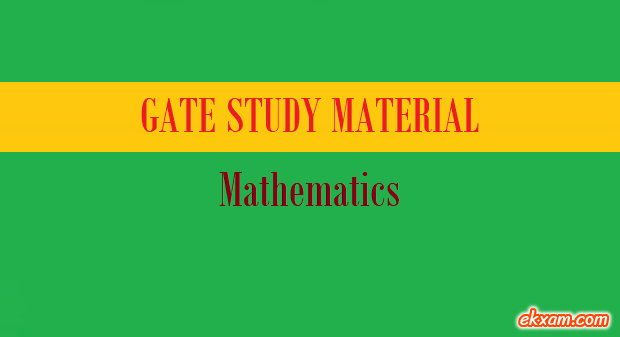Advertisements
Ratings
GATE AG Syllabus 2024 – GATE 2025 exam will be conduct by IIT, Roorkee on dates 1, 2 and 8, 9 February, 2025.
Here we have provided latest Agricultural Engineering syllabus & paper pattern for GATE 2024 aspirants.
All candidates with Agricultural Engineering subject are advised to download this latest syllabus before starting their GATE 2024 exam preparation.
Contents
- GATE 2025 Highlights
- GATE Agricultural Engineering Paper Pattern 2024
- GATE Agricultural Engineering Exam Pattern Details 2024
- GATE Agricultural Engineering Syllabus 2024 PDF
- GATE Agricultural Engineering Syllabus for General Aptitude 2024
- GATE Agricultural Engineering Syllabus for Engineering Mathematics 2024
- GATE Agricultural Engineering Syllabus for Core Subjects 2024
- GATE Agricultural Engineering Syllabus Weightage 2024
- GATE Agricultural Engineering Guidance
- GATE Agricultural Engineering Syllabus & Exam Pattern FAQs
- Related Links
- GATE Total Information & Guidance
GATE 2025 Highlights
| GATE 2025 Conducting Body | IIT, Roorkee |
| GATE 2025 Exam Date | 1, 2, 8, 9 February, 2025 |
| GATE 2025 Total Subjects | 30 |
| GATE 2025 Exam Mode | ONLINE Computer Based Test (CBT) |
| GATE 2025 Exam Duration | 3 hours (180 minutes) |
| GATE 2025 Total Questions | 10 (GA) + 55 (subject)= 65 |
| GATE 2025 Total Marks | 100 |
| GATE 2025 Question Type | MCQ, MSQ, NAT |
GATE Agricultural Engineering Paper Pattern 2024
| Paper Sections | Marks Distribution |
|---|---|
| Subject Questions | 72% of the total marks. |
| Engineering Mathemetics | 13% of the total marks. |
| General Aptitude | 15% of the total marks. |
GATE Agricultural Engineering Exam Pattern Details 2024
| Particulars | Details |
|---|---|
| Mode of Exam | Online |
| Number of Questions | 65 |
| Duration of Exam | 3 hours |
| Pattern of Questions |
|
| Marking Scheme |
|
| Number of Sections |
|
| Topic wise weightage |
|
GATE Agricultural Engineering Syllabus 2024 PDF
| General Aptitude Syllabus (Common to all papers) [pdf] | Download |
| GATE Syllabus for Agricultural Engineering (AG) [pdf] | Download |
GATE Agricultural Engineering Syllabus for General Aptitude 2024
| Topics | Subtopics |
|---|---|
| Verbal Aptitude |
|
| Quantitative Aptitude |
|
| Analytical Aptitude |
|
| Spatial Aptitude |
|
GATE Agricultural Engineering Syllabus for Engineering Mathematics 2024
| Topics | Syllabus |
|---|---|
| Linear Algebra |
|
| Calculus |
|
| Differential Equations |
|
| Vector Analysis |
|
| Complex Analysis |
|
| Probability and Statistics |
|
GATE Agricultural Engineering Syllabus for Core Subjects 2024
| Subjects | Syllabus |
|---|---|
| Farm Machinery |
|
| Farm Power |
|
| Soil and Water Conservation Engineering |
|
| Irrigation and Drainage Engineering |
|
| Agricultural Processing Engineering |
|
| Dairy and Food Engineering |
|
GATE Agricultural Engineering Syllabus Weightage 2024
| Topic | Expected Weightage in Marks |
|---|---|
| General Aptitude | 10 |
| Engineering Mathematics | 10-12 |
| Farm Machinery | 10 |
| Farm Power | 7-8 |
| Soil and Water Conservation Engineering | 15 |
| Irrigation and Drainage Engineering | 3-4 |
| Dairy and Food Engineering | 5-8 |
GATE Agricultural Engineering Guidance
- How to Prepare for GATE Agricultural Engineering: A Comprehensive Guide
- GATE 2025 Books: Agricultural Engineering
- GATE AG Syllabus 2025: Agricultural Engineering
- GATE AG Previous Year Solved Papers – (2023-2007)
GATE Agricultural Engineering Syllabus & Exam Pattern FAQs
What is GATE Agricultural Engineering exam?
GATE Agricultural Engineering is a national level entrance exam for admission to postgraduate programs in Agricultural Engineering and related fields at various institutes across India.
What is the syllabus for GATE Agricultural Engineering?
The syllabus for GATE Agricultural Engineering includes various topics such as Soil and Water Conservation Engineering, Farm Power and Machinery, Irrigation and Drainage Engineering, etc. You can check the official website of GATE for a detailed syllabus.
What is the exam pattern for GATE Agricultural Engineering?
The GATE Agricultural Engineering exam is a computer-based test that consists of 65 questions worth a total of 100 marks.
The paper has two types of questions - multiple-choice questions (MCQs) and numerical answer type (NAT) questions. The duration of the exam is 3 hours.
How should I prepare for GATE Agricultural Engineering?
To prepare for GATE Agricultural Engineering, you should follow a structured study plan, make notes, and practice solving previous year question papers and mock tests.
You should also refer to standard textbooks and study materials, attend online courses, and seek guidance from experts or mentors.
What are the best books for GATE Agricultural Engineering preparation?
Some of the best books for GATE Agricultural Engineering preparation are:
- Soil and Water Conservation Engineering - Glenn O. Schwab
- Farm Power and Machinery Management - Donnell Hunt
- Irrigation Engineering - R.N. Reddy
- Principles of Agricultural Engineering - A.M. Michael and T.P. Ojha
- Postharvest Technology and Food Process Engineering - Amalendu Chakraverty
Is there any negative marking in the GATE Agricultural Engineering exam?
Yes, there is negative marking in the GATE Agricultural Engineering exam for MCQs. For every incorrect answer to 1-mark questions, 1/3 mark will be deducted, and for every incorrect answer to 2-mark questions, 2/3 mark will be deducted.
Can I use a calculator during the GATE Agricultural Engineering exam?
Yes, a virtual calculator will be provided on the computer screen during the GATE Agricultural Engineering exam.
How is the GATE Agricultural Engineering exam score calculated?
The GATE Agricultural Engineering exam score is calculated on the basis of the number of correct answers and incorrect answers.
For MCQs, 1 or 2 marks are awarded for a correct answer, and 1/3 or 2/3 marks are deducted for an incorrect answer.
For NAT questions, 1 or 2 marks are awarded for a correct answer, and there is no negative marking for incorrect answers.
What is the qualifying cutoff for the GATE Agricultural Engineering exam?
The qualifying cutoff for the GATE Agricultural Engineering exam varies from year to year and is decided by the exam conducting authority.
Generally, the cutoff for General category candidates is around 25-30 marks out of 100, and for SC/ST/OBC/PwD candidates, it is around 20-25 marks out of 100.
What are the benefits of qualifying GATE Agricultural Engineering?
Qualifying GATE Agricultural Engineering opens up various opportunities such as admission to postgraduate programs in Agricultural Engineering, scholarships, fellowships, and job opportunities in the public and private sectors.
GATE scores are also accepted by some foreign universities for admission to their postgraduate programs.
Recent Posts
- AAI Through GATE 2024 – JE (Junior Executive)
- M Tech and MS Programs Through GATE and GRE: Navigating Postgraduate Options
- Job Opportunities After GATE 2024 in India: What You Didn’t Know!
- BSPHCL Through GATE 2024 – 40 AEE
Related Tags
Gate ag syllabus pdf free download 2025, Gate ag syllabus pdf download 2025, Gate ag syllabus pdf 2025, gate agricultural engineering syllabus pdf 2025, agriculture gate syllabus pdf 2025, gate agricultural engineering eligibility 2025, gate agricultural engineering syllabus 2025, gate agricultural engineering study material pdf 2025
Related Links
- GATE 2025 Books: Agricultural Engineering
- GATE AG Syllabus 2025: Agricultural Engineering
- GATE AG Previous Year Solved Papers – (2023-2007)
| GATE (Reasoning & Aptitude & Maths) Books |
| GATE Guide Books |
GATE Total Information & Guidance
Click below given links to get further information.





Hello SURENDRAN,
There is a book in market QUESTION BANK IN AGRICULTURAL ENGINEERING BY ER, AMANDEEP GODARA. The book also contains answers with explanation of last 9 yrs GATE. If u read this book only, you may get a good position in IITs.
Hello Sir/Madam,
This is Surendran.K, can you please tell me where can I get the solutions (and not just answers) to of GATE-2013,14,15 of Agricultural Engineering stream.Thank you so much for spending your precious time to read my request.
Hello Surendran,
Currently there is no such book available in market which provide complete solution of GATE Agricultural Engineering previous years papers.
If we found any we will post it here : http://www.gate2016.info/gate-2016-books/agricultural-engineering-ag-gate-books/
You please check this section regularly.
Feel free to ask if you need any help in future & join us @ Google+ / Facebook for getting regular updates.
Respected Sir/Madam,
Thank you very much for replying to my previous post.Can you kindly get me the contact no or by email or facebook, some means by which I can reach the previous year GATE Agricultural Engineering Topper. Your help will be extremely helpful.Please send a copy of your reply to surendran.k024@gmail.com
Hello Surendran,
Currently we no such contacts. If we find any we will notify here on this blog.
Be regular with this blog.